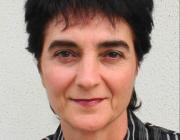The videopresentations of the META-FRASEIS Programme briefly draw on the co-ordinator's research and aim at making issues and debates in translation research accessible to a wider public, for instances when attendance is not feasible. It serves e-learning purposes and contributes to the translation courses at the university, by enhancing extra-curricular activities.
In units 1-3 (2007-2010), the coordinator highlights research perspectives allowed by translation practice in real-life professional contexts (unit 1), shows the potential of translation practice to register aspects of target language evolution (unit 2) and focuses on realization in discourse of target linguistic features in supra-national con.texts like that of the EU (unit 3)
In units 4-7 (2010-2016), the coordinator makes use of visual material from visits and scientific cooperations with foreign universities to highlight translation research issues. Unit 4 (with visual material from the University of Warwick and Aston at Birmingham) explores how translation can contribute to language teaching. Unit 5 (with visual material from the University of Surrey, Guildford, U.K. and Queen's University, Northern Ireland) deals with translation as representation. Unit 6 (with visual material from Bogazici University, Istanbul, Turkey) highlights different narratives reverberating through target versions and establishing aspects of historical memory. Unit 7 (with visual material from the University of Manchester kand the University of Bangor, Wales, U.K.) explores translation as an instance of language contact.
The META-FRASEIS Programme would like to thank the students who were involved in the videopresentations through the translation courses they attended and for contributing to data selection and evaluation, or other activities for the videopresentations. Their contribution was valuable.

